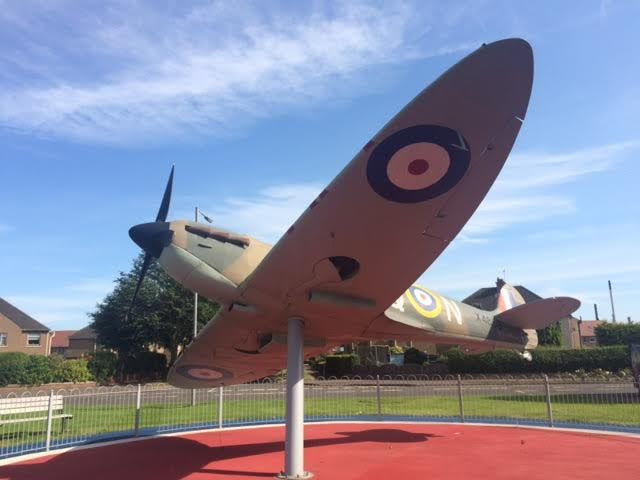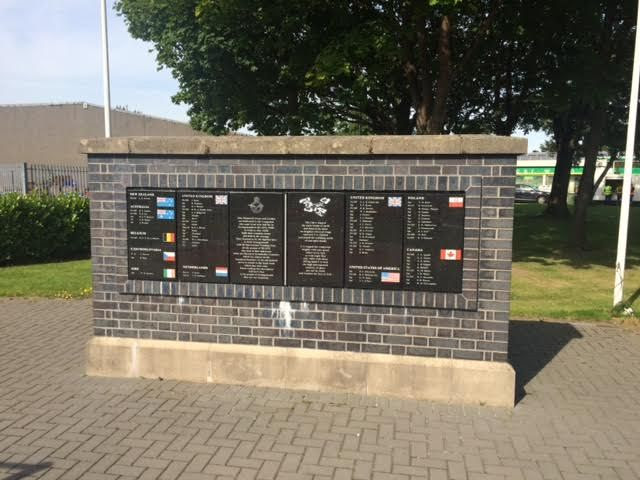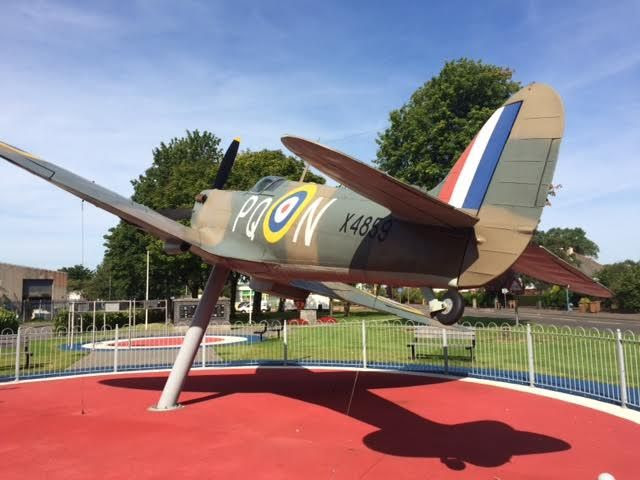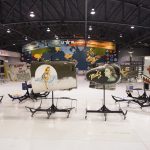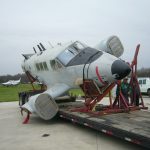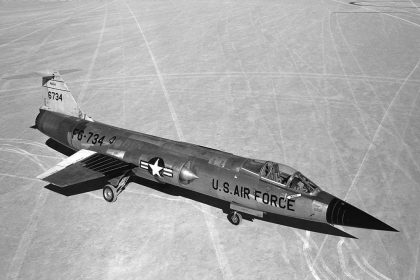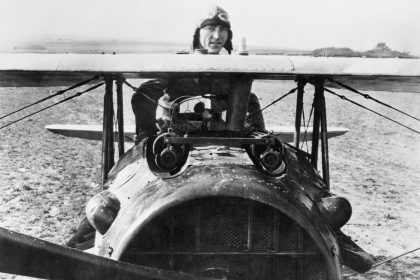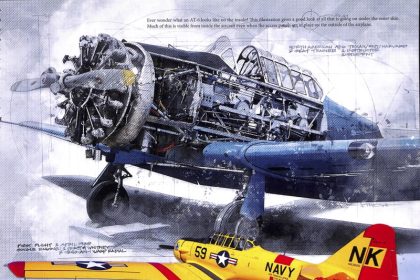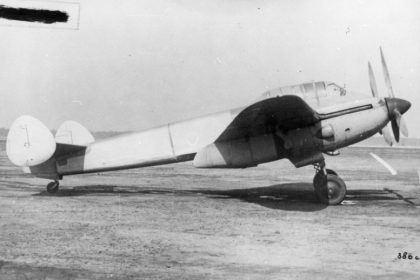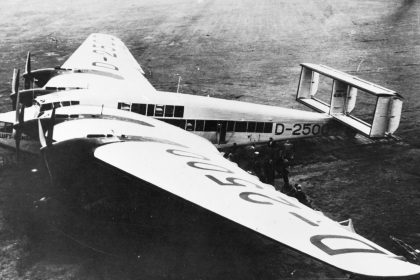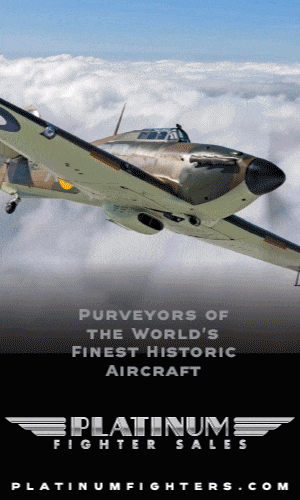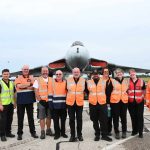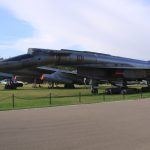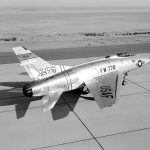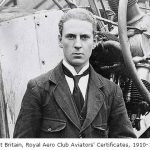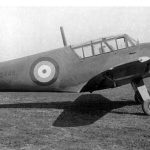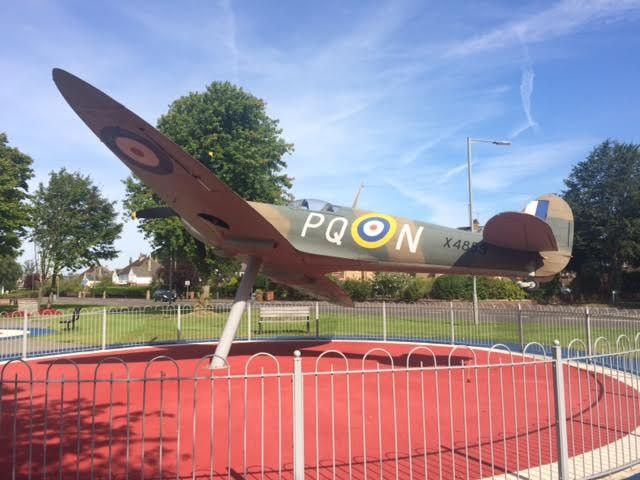
Today we share this great article originally published on Urban Ghosts.Situated 25 miles north west of Edinburgh, the town of Grangemouth is today dominated by one of the largest oil refineries in Europe. But the Stirlingshire town also enjoys a long and distinguished aviation heritage, which began in May 1939 with the founding of the Central Scotland Airport.For several months the airfield was home to the Civilian Air Navigation School (CANS) until the outbreak of World War Two saw the arrival of the Supermarine Spitfires of RAF Fighter Command‘s No. 602 Squadron. These were swiftly joined by the Blenheims and Gladiators of 141 Squadron and the Westland Lysanders of 263 Squadron as the conflict heated up.A pre-war civilian control tower and two existing civil hangars were joined by eight military blister hangars required to service and maintain the various planes in often inhospitable weather. By December 1940 RAF Grangemouth was home to the Spitfire Mk.1s of No. 58 Operational Training Unit (OTU) – the unit with which the town is most closely associated, and which is now immortalised in Grangemouth’s poignant World War Two memorial.
Unveiled in May 2013, a full-scale Supermarine Spitfire replica sits atop a plinth in a memorial garden at the heart of the long-abandoned aerodrome. The fighter, coded PQ-N, represents an aircraft flown by Polish Sergeant Pilot Eugeniusz Lukomski, who was killed in a training accident in November 1941 at the age of 23.The all-metal Spitfire replica, which is understood to have cost £100,000, was made possible by a collaboration between the Grangemouth Spitfire Memorial Trust (GSMT) and 1333 (Grangemouth Spitfire) Squadron Air Training Corps. Among those present at the unveiling was 100-year-old former aircraft mechanic John ‘Dinger’ Bell, who worked as an engineer at Grangemouth during the Second World War.
According to the Trust’s website: “The memorial commemorates the trainee Spitfire pilots who had come to RAF Grangemouth from not only Great Britain but also Poland, Czechoslovakia, Holland, Belgium, Canada, the USA, Australia, New Zealand, Ireland, and India, to learn to fly the Spitfire fighter aircraft during the Second World War, and who died at the airfield while serving with 58 Operational Training Unit.” GSMT chairman Iain Mitchell said at the unveiling: “The young men who trained at Grangemouth were among the bravest the world has ever seen, and it is a huge honour for us to be in a position to commemorate their sacrifice with this stunning memorial. It’s the first of its kind in Scotland and we can’t wait to share it with everyone.
“This project has been five years in the making for us. Ever since the memorial wall went up in 2008 we’ve been trying to raise the funds to have the replica put up so to see it finally happen is a proud moment for all involved.”Like many abandoned wartime airfields across the United Kingdom, the haunting relics of RAF Grangemouth remain hidden in plain sight amid the modern streetscene. The garden of remembrance, with its moving Memorial Wall, lies near two surviving 1930s hangars that now form part of an industrial estate. Inchyra Park also occupies a section of the former airfield site and the secondary runway is now Inchyra Road.But it’s the stunning Spitfire replica that serves as the most powerful reminder of the Grangemouth’s aviation heritage; a lasting tribute to those who gave their lives during the Second World War, and an impressive reflection of the efforts of those who made the memorial a reality.








